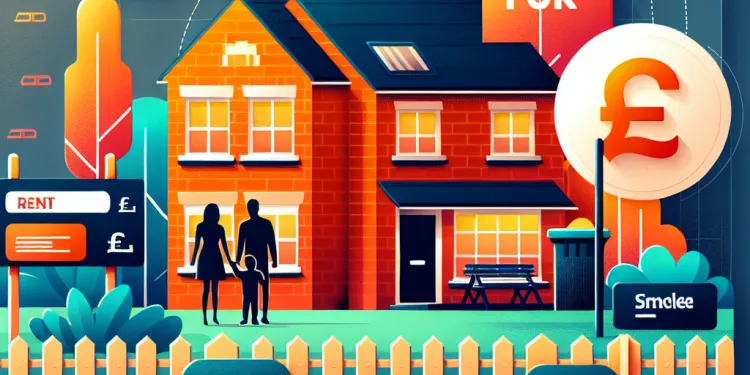
Find Help
More Items From Ergsy search
-
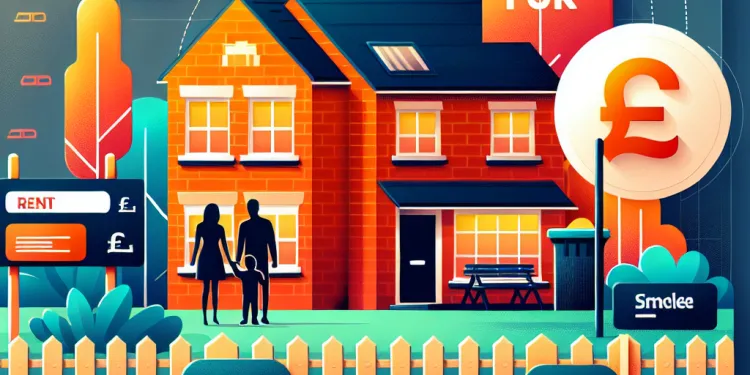
Can a landlord evict me for complaining about property conditions?
Relevance: 100%
-

What can I do if my landlord wants to evict me?
Relevance: 60%
-

Can my landlord evict me without providing a reason?
Relevance: 53%
-
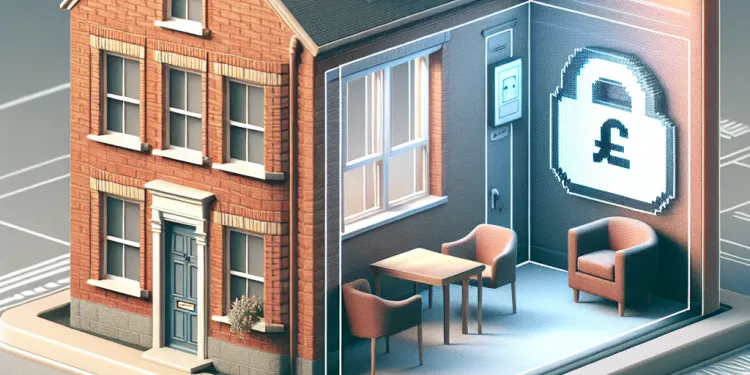
Can a landlord lock me out or remove my belongings to evict me?
Relevance: 52%
-

Can I negotiate with my landlord to avoid eviction?
Relevance: 52%
-

What should I do if I receive an eviction notice from my landlord?
Relevance: 50%
-

What are my rights during the eviction process?
Relevance: 44%
-

What can I do if I believe my eviction is retaliatory?
Relevance: 43%
-
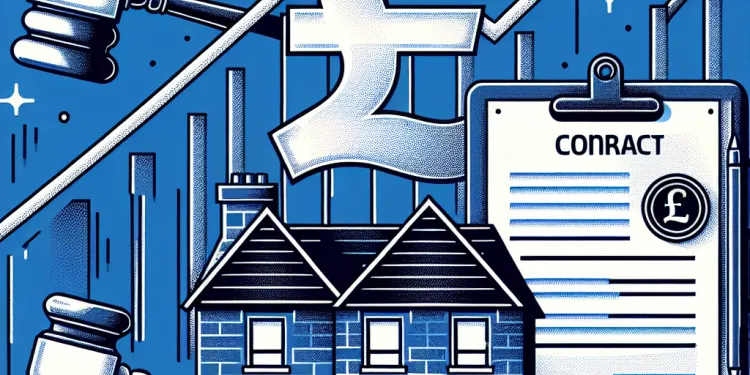
Are there changes to the eviction process?
Relevance: 42%
-

What are the consequences of having an eviction on my record?
Relevance: 41%
-
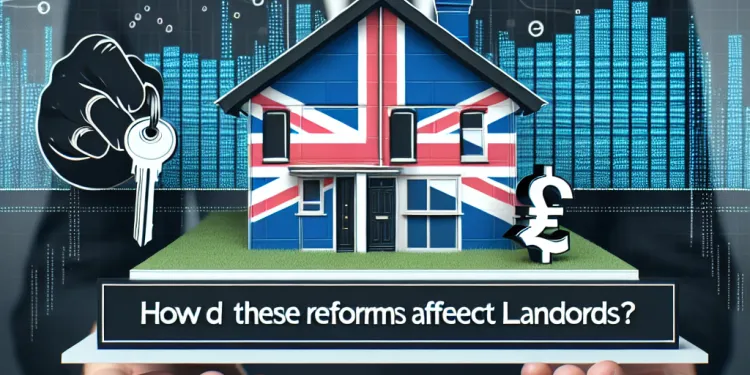
How do these reforms affect landlords?
Relevance: 41%
-

What happens if I stay beyond the eviction deadline?
Relevance: 40%
-

How can I contest or challenge the eviction?
Relevance: 40%
-

How can I prepare for an eviction court hearing?
Relevance: 39%
-

How are landlord-tenant issues resolved in property litigation?
Relevance: 39%
-

Does filing for bankruptcy stop an eviction?
Relevance: 39%
-

Has the notice period for eviction changed?
Relevance: 39%
-

How long do I have to move out after receiving an eviction notice?
Relevance: 39%
-

Can eviction affect my credit score?
Relevance: 38%
-

Can I stop an eviction if I catch up on rent payments?
Relevance: 38%
-

Landlord Licensing Laws Under Review as Tenants Call for Stronger Protections
Relevance: 37%
-

Can I appeal a court's eviction decision?
Relevance: 37%
-

How will the cuts impact landlords?
Relevance: 34%
-

Is mediation an option to resolve eviction disputes?
Relevance: 34%
-

How are disputes between landlords and tenants handled?
Relevance: 34%
-
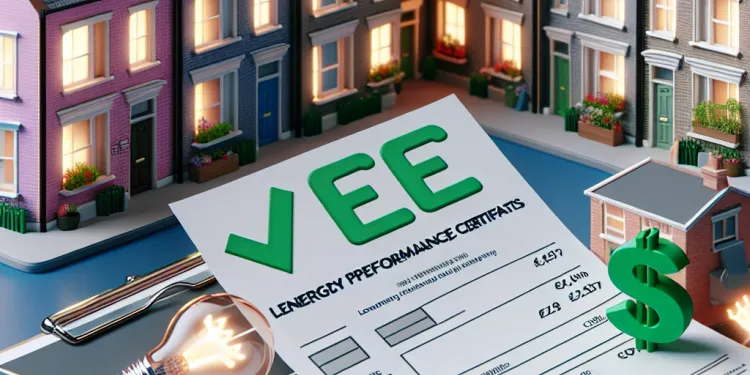
Are landlords required to provide energy performance certificates?
Relevance: 32%
-

Are there any government programs that can help me avoid eviction?
Relevance: 32%
-

What should I do if I can't afford a lawyer for the eviction process?
Relevance: 31%
-

How do I find alternative housing quickly if evicted?
Relevance: 30%
-

Why might someone need a property litigator?
Relevance: 30%
-

What are the new Tenancy Law Reforms in the UK in 2025?
Relevance: 30%
-

Can property litigation involve commercial real estate?
Relevance: 29%
-

Can I complain to a government agency about unsolicited contacts?
Relevance: 29%
-

What new protections are included for tenants?
Relevance: 28%
-

5 Broker Exclusive Buy to Let Mortgage Lenders you need to know about as a Landlord
Relevance: 27%
-

How does the reform impact renting costs?
Relevance: 27%
-

How can a property litigator assist in lease disputes?
Relevance: 27%
-

What is property litigation?
Relevance: 27%
-

What types of disputes are involved in property litigation?
Relevance: 26%
-

Can property litigation be avoided?
Relevance: 25%
Understanding Your Rights as a Tenant
In the United Kingdom, tenants have specific rights when it comes to the conditions of the property they are renting. One of these rights includes living in a property that is safe and in good repair. If property conditions fall below an acceptable standard, tenants are encouraged to report these issues to their landlord. However, tenants often worry about potential repercussions such as eviction for voicing these concerns.
The Legal Framework
In the UK, tenants are protected by a framework of laws such as the Landlord and Tenant Act 1985, which obligates landlords to maintain their properties in good repair. If a landlord fails to do so, tenants have the right to complain and request necessary repairs without fear of unfair eviction. Retaliatory eviction, where a landlord attempts to evict a tenant following a complaint, is considered unlawful under certain circumstances.
Protection from Retaliatory Eviction
The Deregulation Act 2015 provides specific protections for tenants in England. If a tenant reports a problem regarding the condition of the property to the local council, and the council serves an improvement notice or a notice requiring emergency remedial action, the landlord is restricted from serving a section 21 (no-fault) eviction notice for six months. This is designed to protect tenants from retaliatory eviction.
What You Should Do
If you are facing property condition issues, it is crucial to document your communications with your landlord. Always report issues in writing, through email or a dated letter, so you have a record. Should the landlord fail to address the problem adequately, you can contact your local council's environmental health department. They have the authority to inspect your property and can order the landlord to carry out repairs.
Seeking Legal Assistance
Should you feel that you are being evicted unfairly after making a complaint, it is advisable to seek legal advice. Organizations such as Shelter or Citizens Advice can provide guidance and support. In some cases, you may be eligible for Legal Aid to assist with any legal proceedings.
Conclusion
Tenants in the UK are entitled to live in homes that are safe and secure. Complaining about property conditions should not lead to eviction. With legal frameworks in place to protect tenants from retaliatory eviction, it is vital for tenants to be aware of their rights and the proper procedures to follow if they encounter issues. Taking these steps can help ensure that landlords adhere to their responsibilities and maintain the quality of their rental properties.
Knowing Your Rights as a Tenant
If you rent a home in the UK, you have certain rights. Your home should be safe and in good condition. If something is wrong with your home, tell your landlord. Some people worry that they might be forced to leave if they complain.
The Law for Tenants
In the UK, there are laws that protect you. One law is the Landlord and Tenant Act 1985. This law says landlords must keep homes in good shape. If they don't, you can ask for repairs without the fear of being kicked out unfairly. It is illegal for landlords to evict you just because you complained.
Protection from Unfair Eviction
The Deregulation Act 2015 helps protect you in England. If you report a problem to the local council and they agree, the landlord cannot ask you to leave for six months without a good reason. This helps stop unfair evictions.
What You Should Do
If there is a problem in your home, tell your landlord in writing. This could be through an email or a letter with a date. This way, you have proof. If the problem isn't fixed, speak to your local council's environmental health department. They can ask the landlord to make repairs.
Getting Help with the Law
If you think you are being kicked out unfairly, get advice. Organizations like Shelter or Citizens Advice can help you. You might get Legal Aid to help with the costs if you need to go to court.
Final Thoughts
As a tenant in the UK, you have the right to live in a safe home. You should not be evicted just for reporting problems. Laws exist to protect you from unfair eviction. Knowing your rights can help ensure your landlord takes care of your home.
Frequently Asked Questions
Can a landlord evict a tenant for complaining about property conditions?
Generally, no. Landlords are not allowed to retaliate against tenants for making legitimate complaints about property conditions.
What is retaliatory eviction?
Retaliatory eviction is when a landlord attempts to evict a tenant as punishment for the tenant's lawful actions, such as complaining about conditions.
What should I do if I suspect I'm being evicted in retaliation?
Document all communications and complaints, and consult with a lawyer or local tenant's rights organization.
Are there laws protecting tenants from retaliatory eviction?
Yes, many jurisdictions have laws that protect tenants from being evicted as retaliation for complaining.
What evidence should I gather if I face a retaliatory eviction?
Keep records of all correspondence, notices, and complaints you have made regarding property conditions.
Can a landlord increase rent as retaliation?
In many places, raising rent as a form of retaliation is also illegal.
Is filing a complaint with the health department protected from retaliation?
Yes, filing a complaint with health or housing authorities is typically a protected activity.
How long after a complaint can a landlord serve an eviction notice?
Laws vary, but many states presume retaliation if eviction occurs within a period (often 6 months) after a complaint.
What are legal reasons for eviction?
Legal reasons include non-payment of rent, lease violations, or other lawful grounds not related to complaints.
Can I complain anonymously about property conditions?
Yes, you can often make anonymous complaints to local authorities.
What can happen if a landlord is found guilty of retaliatory eviction?
The eviction can be stopped, and landlords may face penalties or be required to pay damages.
How do I prove a retaliatory eviction in court?
Show evidence of recent complaints, timing of eviction attempts, and any retaliatory statements by the landlord.
Can repairing issues without landlord's consent lead to eviction?
Doing unauthorized repairs can complicate matters, but it still does not justify retaliatory eviction for complaints.
What is the best way to communicate with a landlord about property issues?
Always communicate in writing, such as email or certified mail, to create a record of the conversation.
Does tenant rights information vary by location?
Yes, tenant rights and protections can vary widely depending on local laws.
How can a tenant protect themselves from retaliatory eviction?
Understand local laws, maintain good records, and seek legal advice if needed.
Can tenant advocacy organizations help with retaliatory eviction?
Yes, these organizations can provide advice and resources for tenants facing potential retaliation.
Does landlord insurance cover legal fees for retaliation claims?
It depends on the policy, but some may cover legal defense costs for landlords.
Can mediation help resolve disputes over property conditions without eviction?
Yes, mediation can be a useful tool to resolve disputes amicably.
Are verbal complaints about property conditions protected from retaliation?
Yes, but written complaints are preferable as they provide a tangible record.
Can a landlord make a tenant leave for complaining about the home?
If you have told the landlord about a problem in your home, they should not make you leave because of it.
If you think this is happening, here are some helpful tips:
- Ask someone you trust for help, like a family member or friend.
- Write down what is happening so you don't forget.
- Talk to someone who knows about housing, like a housing advisor or lawyer.
It is important to know your rights as a tenant.
No, landlords usually can't get back at you for telling them there are problems with the place you rent.
What is retaliatory eviction?
Retaliatory eviction is when a landlord tries to make a tenant leave because the tenant complained or asked for repairs. It might happen if the tenant talks to the landlord about fixing things in the home, and the landlord does not like it.
If you have trouble understanding, you can ask someone you trust to help explain. You can also use a dictionary to look up words you don't know. Pictures and videos about renting a home can also help you understand better.
Retaliatory eviction is when a landlord tries to make a tenant leave as a punishment. This can happen when the tenant does something allowed by law, like complaining about problems where they live.
What should I do if I think my landlord is making me leave because I complained?
Write down everything when you talk or complain about something. Ask a lawyer or a group that helps people who rent homes for help.
Do laws stop landlords from unfairly making tenants leave?
Sometimes, a landlord might try to make a tenant leave because the tenant spoke up about a problem. This is called an "unfair eviction."
There are rules to help stop this. These rules say that landlords can't make tenants leave for no good reason. Tenants have the right to speak up if something is wrong.
If you are worried about unfair eviction, you can:
- Talk to someone who knows the rules, like a legal helper or tenant advisor.
- Keep notes and papers about any issues you have had.
- Learn about your rights as a tenant.
Yes, many places have rules that stop landlords from making renters move out because they complained.
What should I do if my landlord tries to evict me for no good reason?
If your landlord tries to make you leave your home because you told on them or asked for repairs, this is called a "retaliatory eviction." It means they are being unfair because you stood up for yourself.
Here is what you can do to get ready:
- Keep all letters, emails, or messages from your landlord. This helps show what they said to you.
- Write down dates and details of what happened. For example, when you asked for repairs or when they sent you a notice to leave.
- Take pictures or videos if there is a problem in your home. This can be proof that there is something wrong they need to fix.
- Ask someone you trust, like a friend or family member, to help you stay organized.
You can use tools like a notebook to write things down, or a calendar to remember dates. These will help you show what really happened.
Keep a record of all letters, messages, and complaints you have about the state of the property.
Can a landlord raise rent to get back at someone?
In many places, it is against the law to make rent higher just to get back at someone.
Can I get in trouble for telling the health department about a problem?
Yes, telling health or housing authorities if something is wrong is usually allowed and safe to do.
When can a landlord ask someone to move out after they complain?
Rules are different in each state, but many places think it's unfair if someone is told to leave their home soon after they complain about something. This is usually if it happens within 6 months of the complaint.
Why can someone be asked to leave their home by law?
Reasons a person might have to move could be because they didn’t pay their rent, they didn’t follow the rules in their lease, or there are other legal reasons that are not related to complaints.
Can I tell someone secretly if there is a problem with a house?
Yes, you can usually tell the local council about a problem without giving your name.
What happens if a landlord is guilty of revenge eviction?
If a landlord is found guilty of revenge eviction, they might get into trouble. They could have to pay a fine, or the court might make them let the tenant stay. It's important to know the rules and ask for help if needed.
If you are worried about this, ask someone you trust, like a family member or a helper, to explain things. They can also help you talk to a lawyer or someone who knows the law.
You can stop being kicked out of your home. Sometimes landlords can get into trouble and might have to pay you money.
How can I show that my landlord evicted me unfairly?
Find proof of any recent complaints. Look at when the landlord tried to evict you. Check if the landlord said anything mean or unfair to you.
Can fixing problems without asking your landlord make you lose your home?
Fixing things without asking might cause problems. But it does not make it okay to be kicked out for speaking up about problems.
How can I talk to my landlord about problems with the house?
If you have a problem with the place you live, you should tell your landlord. Here is how you can do it:
1. Write a letter or email. It's good to have everything written down. You can use a computer or ask someone to help you write it.
2. Be clear. Say what the problem is and what you need. Use short sentences.
3. Tell them quickly. Don't wait too long to let them know about the problem.
4. Ask for help. If it is hard to write, ask a friend or family member to help you.
If you need help, you can also use tools like text-to-speech on a computer or phone to read your email or letter out loud. This can help you make sure it is easy to understand.
Always talk by writing. You can use email or letters. This way, you have a record of what was said.
Are tenant rights different in each place?
Yes, rules for people who rent homes can be different in each place.
How can a renter stay safe from being evicted in revenge?
Know the rules in your area. Keep good notes, and ask a lawyer for help if you need it.
Can groups that help renters stop unfair evictions?
Yes, these groups can help people who rent their homes. They give advice and tools if a landlord is being unfair.
Does landlord insurance pay for lawyer costs if a tenant says you are being unfair?
It depends on the rules, but some rules might pay for landlords' lawyer help.
Can talking help solve fights about homes without needing to move out?
Mediation can help people solve their problems in a friendly way.
Can you get in trouble for speaking up about problems with a house?
Yes, but it is better to write down complaints because then you have proof.
Useful Links
This website offers general information and is not a substitute for professional advice.
Always seek guidance from qualified professionals.
If you have any medical concerns or need urgent help, contact a healthcare professional or emergency services immediately.
Some of this content was generated with AI assistance. We’ve done our best to keep it accurate, helpful, and human-friendly.
- Ergsy carfully checks the information in the videos we provide here.
- Videos shown by Youtube after a video has completed, have NOT been reviewed by ERGSY.
- To view, click the arrow in centre of video.
- Most of the videos you find here will have subtitles and/or closed captions available.
- You may need to turn these on, and choose your preferred language.
- Go to the video you'd like to watch.
- If closed captions (CC) are available, settings will be visible on the bottom right of the video player.
- To turn on Captions, click settings .
- To turn off Captions, click settings again.
More Items From Ergsy search
-

Can a landlord evict me for complaining about property conditions?
Relevance: 100%
-

What can I do if my landlord wants to evict me?
Relevance: 60%
-

Can my landlord evict me without providing a reason?
Relevance: 53%
-

Can a landlord lock me out or remove my belongings to evict me?
Relevance: 52%
-

Can I negotiate with my landlord to avoid eviction?
Relevance: 52%
-

What should I do if I receive an eviction notice from my landlord?
Relevance: 50%
-

What are my rights during the eviction process?
Relevance: 44%
-

What can I do if I believe my eviction is retaliatory?
Relevance: 43%
-

Are there changes to the eviction process?
Relevance: 42%
-

What are the consequences of having an eviction on my record?
Relevance: 41%
-

How do these reforms affect landlords?
Relevance: 41%
-

What happens if I stay beyond the eviction deadline?
Relevance: 40%
-

How can I contest or challenge the eviction?
Relevance: 40%
-

How can I prepare for an eviction court hearing?
Relevance: 39%
-

How are landlord-tenant issues resolved in property litigation?
Relevance: 39%
-

Does filing for bankruptcy stop an eviction?
Relevance: 39%
-

Has the notice period for eviction changed?
Relevance: 39%
-

How long do I have to move out after receiving an eviction notice?
Relevance: 39%
-

Can eviction affect my credit score?
Relevance: 38%
-

Can I stop an eviction if I catch up on rent payments?
Relevance: 38%
-

Landlord Licensing Laws Under Review as Tenants Call for Stronger Protections
Relevance: 37%
-

Can I appeal a court's eviction decision?
Relevance: 37%
-

How will the cuts impact landlords?
Relevance: 34%
-

Is mediation an option to resolve eviction disputes?
Relevance: 34%
-

How are disputes between landlords and tenants handled?
Relevance: 34%
-

Are landlords required to provide energy performance certificates?
Relevance: 32%
-

Are there any government programs that can help me avoid eviction?
Relevance: 32%
-

What should I do if I can't afford a lawyer for the eviction process?
Relevance: 31%
-

How do I find alternative housing quickly if evicted?
Relevance: 30%
-

Why might someone need a property litigator?
Relevance: 30%
-

What are the new Tenancy Law Reforms in the UK in 2025?
Relevance: 30%
-

Can property litigation involve commercial real estate?
Relevance: 29%
-

Can I complain to a government agency about unsolicited contacts?
Relevance: 29%
-

What new protections are included for tenants?
Relevance: 28%
-

5 Broker Exclusive Buy to Let Mortgage Lenders you need to know about as a Landlord
Relevance: 27%
-

How does the reform impact renting costs?
Relevance: 27%
-

How can a property litigator assist in lease disputes?
Relevance: 27%
-

What is property litigation?
Relevance: 27%
-

What types of disputes are involved in property litigation?
Relevance: 26%
-

Can property litigation be avoided?
Relevance: 25%


